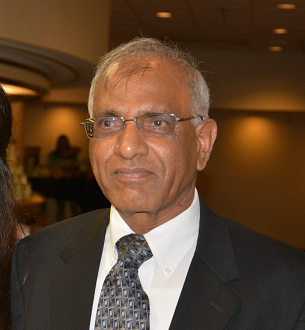
Systems engineering is an interdisciplinary field of engineering and engineering management that focuses on how to design, integrate, and manage complex systems over their life cycles. At its core, systems engineering utilizes systems thinking principles to organize this body of knowledge. The individual outcome of such efforts, an engineered system, can be defined as a combination of components that work in synergy to collectively perform a useful function.

Safety engineering is an engineering discipline which assures that engineered systems provide acceptable levels of safety. It is strongly related to industrial engineering/systems engineering, and the subset system safety engineering. Safety engineering assures that a life-critical system behaves as needed, even when components fail.

Fault tree analysis (FTA) is a type of failure analysis in which an undesired state of a system is examined. This analysis method is mainly used in safety engineering and reliability engineering to understand how systems can fail, to identify the best ways to reduce risk and to determine event rates of a safety accident or a particular system level (functional) failure. FTA is used in the aerospace, nuclear power, chemical and process, pharmaceutical, petrochemical and other high-hazard industries; but is also used in fields as diverse as risk factor identification relating to social service system failure. FTA is also used in software engineering for debugging purposes and is closely related to cause-elimination technique used to detect bugs.
Neville A. Stanton is a British Professor of Human Factors and Ergonomics at the University of Southampton. Prof Stanton is a Chartered Engineer (C.Eng), Chartered Psychologist (C.Psychol) and Chartered Ergonomist (C.ErgHF). He has written and edited over forty books and over three hundred peer-reviewed journal papers on applications of the subject. Stanton is a Fellow of the British Psychological Society, a Fellow of The Institute of Ergonomics and Human Factors and a member of the Institution of Engineering and Technology. He has been published in academic journals including Nature. He has also helped organisations design new human-machine interfaces, such as the Adaptive Cruise Control system for Jaguar Cars.
Human reliability is related to the field of human factors and ergonomics, and refers to the reliability of humans in fields including manufacturing, medicine and nuclear power. Human performance can be affected by many factors such as age, state of mind, physical health, attitude, emotions, propensity for certain common mistakes, errors and cognitive biases, etc.
Reliability engineering is a sub-discipline of systems engineering that emphasizes the ability of equipment to function without failure. Reliability describes the ability of a system or component to function under stated conditions for a specified period of time. Reliability is closely related to availability, which is typically described as the ability of a component or system to function at a specified moment or interval of time.

Sir David Roxbee Cox was a British statistician and educator. His wide-ranging contributions to the field of statistics included introducing logistic regression, the proportional hazards model and the Cox process, a point process named after him.
Financial modeling is the task of building an abstract representation of a real world financial situation. This is a mathematical model designed to represent the performance of a financial asset or portfolio of a business, project, or any other investment.
A hazard analysis is used as the first step in a process used to assess risk. The result of a hazard analysis is the identification of different types of hazards. A hazard is a potential condition and exists or not. It may, in single existence or in combination with other hazards and conditions, become an actual Functional Failure or Accident (Mishap). The way this exactly happens in one particular sequence is called a scenario. This scenario has a probability of occurrence. Often a system has many potential failure scenarios. It also is assigned a classification, based on the worst case severity of the end condition. Risk is the combination of probability and severity. Preliminary risk levels can be provided in the hazard analysis. The validation, more precise prediction (verification) and acceptance of risk is determined in the risk assessment (analysis). The main goal of both is to provide the best selection of means of controlling or eliminating the risk. The term is used in several engineering specialties, including avionics, chemical process safety, safety engineering, reliability engineering and food safety.
Probabilistic design is a discipline within engineering design. It deals primarily with the consideration of the effects of random variability upon the performance of an engineering system during the design phase. Typically, these effects are related to quality and reliability. Thus, probabilistic design is a tool that is mostly used in areas that are concerned with quality and reliability. For example, product design, quality control, systems engineering, machine design, civil engineering and manufacturing. It differs from the classical approach to design by assuming a small probability of failure instead of using the safety factor.

Ship grounding or ship stranding is the impact of a ship on seabed or waterway side. It may be intentional, as in beaching to land crew or cargo, and careening, for maintenance or repair, or unintentional, as in a marine accident. In accidental cases, it is commonly referred to as "running aground".

Bilal M. Ayyub is a researcher in risk analysis and reliability engineering. He has been a professor of civil and environmental engineering at the University of Maryland, College Park (UMD) since 1983, and is also the director of the Center for Technology and Systems Management at its A. James Clark School of Engineering.

Junuthula N. Reddy is a Distinguished Professor, Regent's Professor, and inaugural holder of the Oscar S. Wyatt Endowed Chair in Mechanical Engineering at Texas A&M University, College Station, Texas, USA.[1] He is an authoritative figure in the broad area of mechanics and one of the researchers responsible for the development of the Finite Element Method (FEM). He has made significant seminal contributions in the areas of finite element method, plate theory, solid mechanics, variational methods, mechanics of composites, functionally graded materials, fracture mechanics, plasticity, biomechanics, classical and non-Newtonian fluid mechanics, and applied functional analysis. Reddy has over 620 journal papers and 20 books and has given numerous national and international talks. He served as a member of the International Advisory Committee at ICTACEM, in 2001 and keynote addressing in 2014.[2][3]
P-boxes and probability bounds analysis have been used in many applications spanning many disciplines in engineering and environmental science, including:

Vladimir Igorevich Gurevich is a prominent scientist, inventor and author in the field of electrical engineering with 15 books, more than 200 journal papers and over 100 patents on the topic of relays.

Isaac Elishakoff is a Distinguished Research Professor in the Ocean and Mechanical Engineering Department in the Florida Atlantic University, Boca Raton, Florida. He is an authoritative figure in the broad area of mechanics. He has made several contributions in the areas of random vibrations, solid mechanics of composite material, semi-inverse problems of vibrations and stability, functionally graded material structures, and nanotechnology.

Alphose Zingoni is a Zimbabwean–South African engineer and professor of structural engineering and mechanics in the Department of Civil Engineering at the University of Cape Town, and founder of the Structural Engineering, Mechanics & Computation (SEMC) series of international conferences.
In the mathematical theory of probability, a generalized renewal process (GRP) or G-renewal process is a stochastic point process used to model failure/repair behavior of repairable systems in reliability engineering. Poisson point process is a particular case of GRP.
Katrina Groth is an American mechanical engineer and professor. Groth is an Associate Professor in Mechanical Engineering at the University of Maryland, College Park, where she is the associate director for research for the Center for Risk and Reliability and the director of the Systems Risk and Reliability Analysis lab (SyRRA). Groth previously served as the Principal Research & Development Engineer at Sandia National Laboratories.
Fast probability integration (FPI) is a method of determining the probability of a class of events, particularly a failure event, that is faster to execute than Monte Carlo analysis. It is used where large numbers of time-variant variables contribute to the reliability of a system. The method was proposed by Wen and Chen in 1987.









